|
Books Should Be Free Loyal Books Free Public Domain Audiobooks & eBook Downloads |
|
|
Books Should Be Free Loyal Books Free Public Domain Audiobooks & eBook Downloads |
|
Biographies |
|---|
Book type:
Sort by:
View by:
|
By: Leo Tolstoy (1828-1910) | |
|---|---|
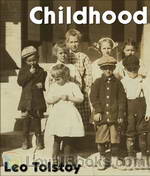 Childhood (English trans.)
Childhood (English trans.)
Childhood, published in 1852, is the first novel in Leo Tolstoy’s autobiographical trilogy, which also includes Boyhood, and Youth. Published when Tolstoy was twenty-three, the book gained immediate notice among Russian writers including Ivan Turgenev, and heralded the young Tolstoy as a major figure in Russian letters. Childhood is an expressionist exploration of the internal life of a young boy, Nikolenka, and was a new form in Russian writing, mixing fact, fiction and emotions to render the moods and reactions of the narrator. Childhood is Tolstoy’s first published work. Translated into English by C. J. Hogarth. | |
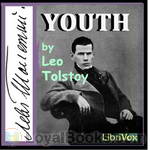 Youth
Youth
Youth is the third in Tolstoy's trilogy of three autobiographical novels, including Childhood and Boyhood, published in a literary journal during the 1850s. (Introduction by Bill Boerst) | |
By: Charlotte Brontë (1816-1855) | |
|---|---|
 Biographical Notes on the Pseudonymous Bells
Biographical Notes on the Pseudonymous Bells
| |
By: Edward Gibbon (1737-1794) | |
|---|---|
 Memoirs of My Life and Writings
Memoirs of My Life and Writings
| |
By: Robert Louis Stevenson (1850-1894) | |
|---|---|
 Records of a Family of Engineers
Records of a Family of Engineers
| |
 Memoir of Fleeming Jenkin
Memoir of Fleeming Jenkin
| |
By: Jack London (1876-1916) | |
|---|---|
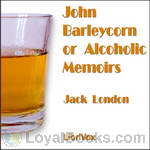 John Barleycorn or Alcoholic Memoirs
John Barleycorn or Alcoholic Memoirs
Jack London died at the age of forty. In this autobiographical work, London describes his life as seen through the eyes of John Barleycorn (alcohol). There is much controversy about the cause of his death just as there is about alcoholism and addiction. London’s brutally frank and honest analysis of his own struggles and bouts with alcohol was way before its time and more modern theories of addiction. With remarkable candor and insight, London describes the demons and gods he encountered through both friend and enemy, John Barleycorn. | |
By: Alexandre Dumas (1802-1870) | |
|---|---|
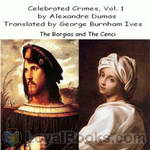 Celebrated Crimes
Celebrated Crimes
Dumas's 'Celebrated Crimes' was not written for children. The novelist has spared no language -- has minced no words -- to describe the violent scenes of a violent time.In some instances facts appear distorted out of their true perspective, and in others the author makes unwarranted charges. The careful, mature reader, for whom the books are intended, will recognize, and allow for, this fact.The first volume comprises the annals of the Borgias and the Cenci. The name of the noted and notorious Florentine family has become a synonym for intrigue and violence, and yet the Borgias have not been without stanch defenders in history... | |
By: G. K. Chesterton (1874-1936) | |
|---|---|
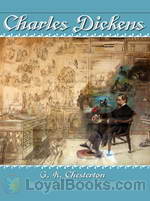 Charles Dickens
Charles Dickens
G. K. Chesterton was a great admirer of Charles Dickens, and wrote a noted critique of Dickens’ works expressing his opinion in his own inimitable style. | |
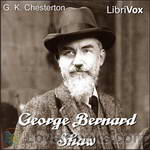 George Bernard Shaw
George Bernard Shaw
Chesterton and Shaw were famous friends and enjoyed their arguments and discussions. Although rarely in agreement, they both maintained good-will towards and respect for each other. However, in his writing, Chesterton expressed himself very plainly on where they differed and why. In Heretics he writes of Shaw: “After belabouring a great many people for a great many years for being unprogressive, Mr. Shaw has discovered, with characteristic sense, that it is very doubtful whether any existing human being with two legs can be progressive at all... | |
By: Louisa May Alcott (1832-1888) | |
|---|---|
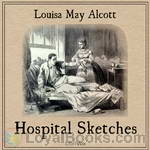 Hospital Sketches
Hospital Sketches
Alcott in 1862 served as a nurse in Georgetown, D.C during the Civil War. She wrote home what she observed there. Those harrowing and sometimes humorous letters compiled make up Hospital Sketches. | |
By: Victor Hugo (1802-1885) | |
|---|---|
 The Memoirs of Victor Hugo
The Memoirs of Victor Hugo
| |
By: Elizabeth Gaskell (1810-1865) | |
|---|---|
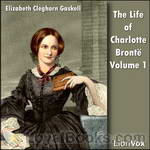 The Life Of Charlotte Brontë
The Life Of Charlotte Brontë
Charlotte Brontë was a British author, the eldest of the three famous Brontë sisters who have become standards of English literature. She is best known for her novel Jane Eyre, one of the greatest classics of all time. Just two years after Charlotte’s death, her friend Elizabeth Gaskell wrote her biography. Want to know more about Charlotte Brontë? If you do, please read this biography. | |
By: Joseph Conrad (1857-1924) | |
|---|---|
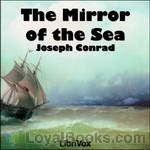 The Mirror of the Sea
The Mirror of the Sea
The Mirror of the Sea is a collection of autobiographical essays first published in various magazines 1904-6. Conrad early in his life earned his bread as a Master Mariner in sailing ships. In his Author’s Note to this work, Conrad states,”Beyond the line of the sea horizon the world for me did not exist….Within these pages I make a full confession not of my sins but of my emotions. It is the best tribute my piety can offer to the ultimate shapers of my character, convictions, and, in a sense, destiny—to the imperishable sea, to the ships that are no more, and to the simple men who have had their day.” | |
 Some Reminiscences
Some Reminiscences
| |
By: Harriet Beecher Stowe (1811-1896) | |
|---|---|
 Life of Harriet Beecher Stowe Compiled From Her Letters and Journals by Her Son Charles Edward Stowe
Life of Harriet Beecher Stowe Compiled From Her Letters and Journals by Her Son Charles Edward Stowe
| |
By: Jacob Abbott (1803-1879) | |
|---|---|
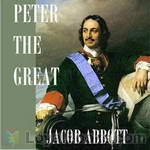 Peter the Great
Peter the Great
“There are very few persons who have not heard of the fame of Peter the Great, the founder, as he is generally regarded by mankind, of Russian civilization. The celebrity, however, of the great Muscovite sovereign among young persons is due in a great measure to the circumstance of his having repaired personally to Holland, in the course of his efforts to introduce the industrial arts among his people, in order to study himself the art and mystery of shipbuilding, and of his having worked with his own hands in a ship-yard there... | |
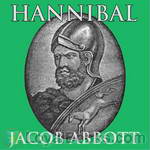 Hannibal
Hannibal
There are certain names which are familiar, as names, to all mankind; and every person who seeks for any degree of mental cultivation, feels desirous of informing himself of the leading outlines of their history, that he may know, in brief, what it was in their characters or their doings which has given them so widely-extended a fame. Consequently, great historical names alone are selected; and it has been the writer's aim to present the prominent and leading traits in their characters, and all the important events in their lives, in a bold and free manner, and yet in the plain and simple language which is so obviously required in works which aim at permanent and practical usefulness... | |
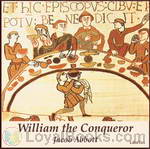 William the Conqueror
William the Conqueror
There are certain names which are familiar, as names, to all mankind; and every person who seeks for any degree of mental cultivation, feels desirous of informing himself of the leading outlines of their history, that he may know, in brief, what it was in their characters or their doings which has given them so widely-extended a fame. Consequently, great historical names alone are selected; and it has been the writer’s aim to present the prominent and leading traits in their characters, and all the important events in their lives, in a bold and free manner, and yet in the plain and simple language which is so obviously required in works which aim at permanent and practical usefulness... | |
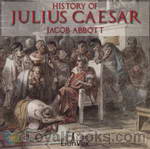 History of Julius Caesar
History of Julius Caesar
The book chronicles the extraordinary life and leadership of Rome’s Emperor Julius Caesar, from his early years to his assassination. | |
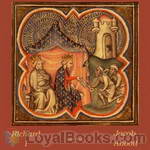 Richard I
Richard I
There are certain names which are familiar, as names, to all mankind; and every person who seeks for any degree of mental cultivation, feels desirous of informing himself of the leading outlines of their history, that he may know, in brief, what it was in their characters or their doings which has given them so widely-extended a fame. Consequently, great historical names alone are selected; and it has been the writer’s aim to present the prominent and leading traits in their characters, and all the important events in their lives, in a bold and free manner, and yet in the plain and simple language which is so obviously required in works which aim at permanent and practical usefulness... | |
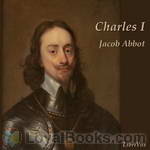 Charles I
Charles I
There are certain names which are familiar, as names, to all mankind; and every person who seeks for any degree of mental cultivation, feels desirous of informing himself of the leading outlines of their history, that he may know, in brief, what it was in their characters or their doings which has given them so widely-extended a fame. Consequently, great historical names alone are selected; and it has been the writer’s aim to present the prominent and leading traits in their characters, and all the important events in their lives, in a bold and free manner, and yet in the plain and simple language which is so obviously required in works which aim at permanent and practical usefulness... | |
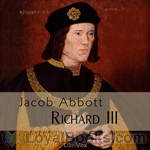 Richard III
Richard III
Jacob Abbott chronicles the unspeakably treacherous rise of Richard III to the throne of England in the midst of the war between the Yorks and the Lancasters and his ultimate fall on the Field of Bosworth. (Introduction by Cathy Barratt) | |
By: Henry David Thoreau (1817-1862) | |
|---|---|
 Walden
Walden
Two years, two months and two days! This is what forms the time line of one man's quest for the simple life and a unique social experiment in complete self reliance and independence. Henry David Thoreau published Walden in 1884. Originally drafted as a series of essays describing a most significant episode in his life, it was finally released in book form with each essay taking on the form of a separate chapter. Thoreau's parents were in financial straights, but rich intellectually and culturally... | |
By: Henry James (1843-1916) | |
|---|---|
 Hawthorne (English Men of Letters Series)
Hawthorne (English Men of Letters Series)
| |
By: Anthony Trollope (1815-1882) | |
|---|---|
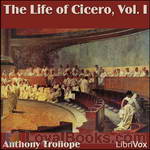 The Life of Cicero
The Life of Cicero
Marcus Tullius Cicero (106-43BC) was an orator, statesman, philosopher and prolific correspondent, who rose as a ‘new man’ in Rome in the turbulent last years of its republican government. Anthony Trollope, best known as a novelist, admired Cicero greatly and wrote this biography late in life in order to argue his virtues against authors who had granted him literary greatness but questioned his strength as a politician and as a man. He takes a personal approach, affording us an insight into his own mind and times as well as those of his subject... | |
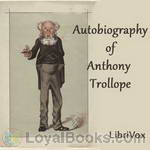 Autobiography of Anthony Trollope
Autobiography of Anthony Trollope
Anthony Trollope's autobiography will delight you whether or not you've read (or listened to) any of his many works. His honest if self-deprecating tone is at times hilarious and at times piteously moving. His detailed descriptions of his writing process and his philosophy of writing as work rather than art are fascinating. Fans of Trollope will enjoy learning the man's perceptions of his novels' shortcomings and triumphs. Anyone will appreciate learning about his years devoted to churning out literature for profit while working full time with the post office. | |
 Thackeray
Thackeray
| |
By: Abraham Lincoln (1809-1865) | |
|---|---|
 The Life and Public Service of General Zachary Taylor: An Address
The Life and Public Service of General Zachary Taylor: An Address
| |
By: Charles Darwin (1809-1882) | |
|---|---|
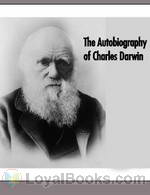 The Autobiography of Charles Darwin
The Autobiography of Charles Darwin
The Autobiography of Charles Darwin is the autobiography of the British naturalist Charles Darwin which was published in 1887, five years after his death. Darwin wrote the book, which he entitled Recollections of the Development of my Mind and Character, for his family. He states that he started writing it on about May 28, 1876 and had finished it by August 3. The book was edited by Charles Darwin’s son Francis Darwin, who removed several passages about Darwin’s critical views of God and Christianity... | |
 More Letters of Charles Darwin
More Letters of Charles Darwin
| |
By: Wilkie Collins (1824-1889) | |
|---|---|
 A Fair Penitent
A Fair Penitent
| |